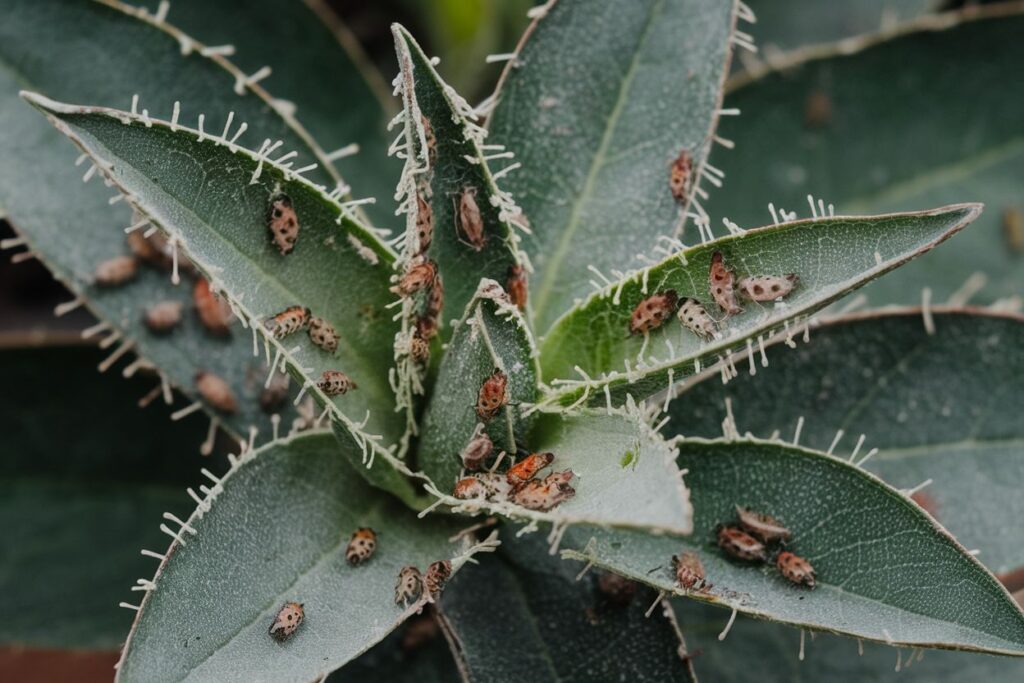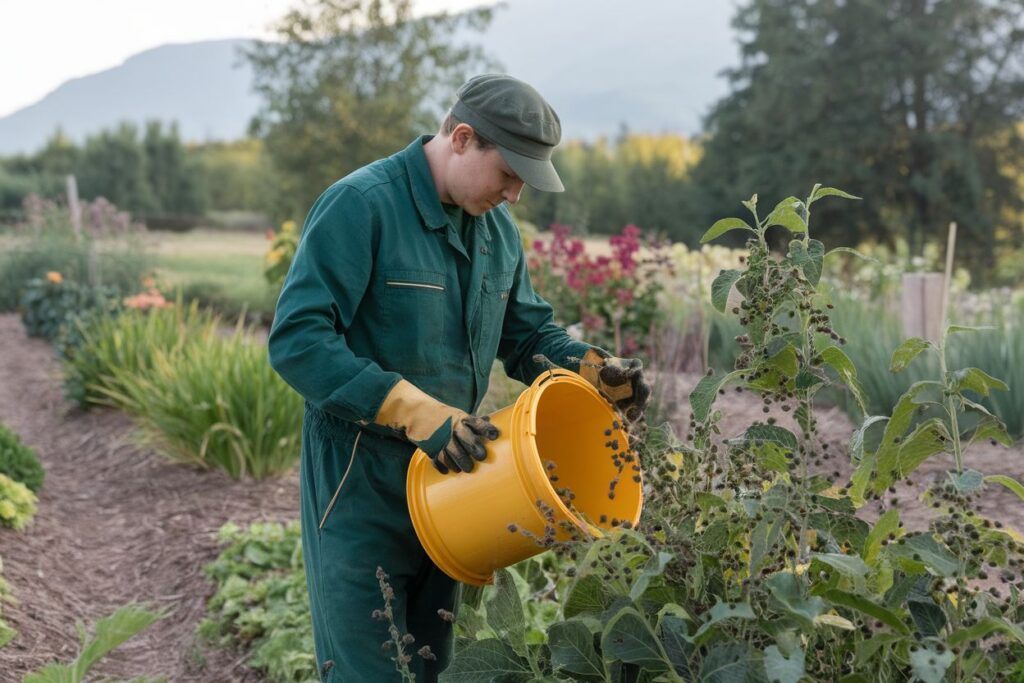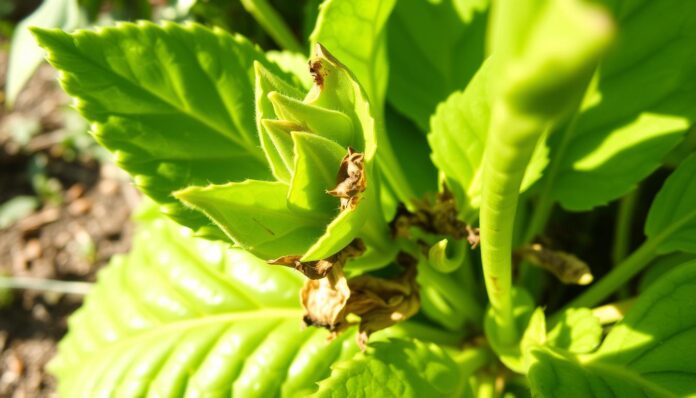Gardeners and plant lovers often deal with aphid infestation. These small insects can harm gardens a lot. They leave many wondering if plants can get better.
Aphids can hurt plants a lot, attacking leaves, stems, and roots. But, most plants can fight back. Knowing how to deal with aphids is key to a healthy garden.
I will show you how plants can get better after aphid attacks. We’ll talk about signs of damage, natural defenses, and treatments. These can help your plants get back to health.
Recovering plants is more than just getting rid of pests. It’s about making a garden ecosystem that supports plants. With the right strategies, gardeners can beat aphid problems and keep gardens healthy.
Understanding Plant Damage from Aphid Attacks
Aphids can harm garden plants a lot, affecting their health and growth. It’s important for gardeners to know how to spot these pests and what they do to plants.
Visual Signs of Aphid Presence
Spotting aphids starts with looking closely at plants. These tiny bugs usually hang out on the underside of leaves and stems. They might look green, black, or white and move slowly.
Seeing sticky stuff called honeydew on plants is a sign of aphids too.
Types of Plant Damage
Aphids can really hurt plants. They make leaves curl and turn yellow or brown. This is because they eat the plant’s tissues.
“Aphids are like tiny vampires of the plant world, sucking vital nutrients and weakening plant defenses.” – Plant Health Expert
Impact on Plant Growth
Long-term aphid attacks can stunt plant growth. Aphids take away nutrients and water, making it hard for plants to grow. Young plants are especially at risk.
Seeing these signs early helps gardeners stop aphids before they cause too much damage.
Natural Plant Defense Mechanisms Against Aphids

Plants have amazing ways to fight off aphids. They have complex defense systems that keep them safe. These systems use chemicals and physical barriers to keep aphids away.
Chemical defenses are key in protecting plants. Many plants make compounds that aphids don’t like. Some plants even make things that taste bad or are sticky, stopping aphids from eating well. This helps keep aphid numbers down and protects the plants.
“Nature has equipped plants with an impressive arsenal of defensive strategies that can effectively combat insect threats.” – Plant Ecology Research Institute
Physical barriers are also important. Thick leaves, waxy coatings, and dense hair make it hard for aphids to get to the plant. Some plants even have special traps to catch insects. This shows how plants can adapt to defend themselves.
Knowing how plants defend themselves helps us protect them better. By supporting their natural defenses, we can grow healthier plants. This makes our gardens and farms stronger and more resilient.
Signs Your Plant is Recovering from Aphid Infestation
After fighting off aphids, gardeners look for signs that their plants are getting better. Spotting these signs helps you see how your plant is healing. It also ensures it stays healthy for a long time.
New Growth Indicators
Seeing new, green leaves means your plant is on the mend. Look for leaves that are bright and vibrant. They should be the same color and shape, without looking damaged or yellow.
Leaf Recovery Patterns
Healthy leaves grow back over time. Old leaves might not fully heal, but new ones show the plant’s strength. Look for leaves that are smooth, have sharp edges, and don’t have sticky stuff or discoloration.
Root System Response
Root health is key to a plant’s recovery. Strong, white roots mean the plant is getting stronger. Check the roots for consistent color, firmness, and new growth. Healthy roots help the plant grow back and fight off pests.
Effective Treatment Methods for Aphid Control
Controlling aphids needs a smart plan for organic pest control. Gardeners can use many effective ways to keep their plants safe. The goal is to pick treatments that don’t harm plants but do reduce aphid infestation.
Insecticidal soap is a strong first defense against aphid infestation. It works by breaking down the insects’ cells, causing them to dry out. You can buy it or make your own with mild soap and water.
Neem oil is another top organic treatment. It comes from the neem tree and stops aphids from eating and reproducing. Used regularly, neem oil cuts down aphid numbers without harming good bugs.
Bringing in beneficial insects is a green way to fight aphids. Ladybugs, lacewings, and wasps eat aphids, helping balance the garden. To attract these helpers, plant different flowers and avoid harsh chemicals.
For big aphid problems, mixing different organic methods works best. Keep an eye on your plants, act fast, and use a whole approach to keep them healthy and aphid-free.
Prevention Strategies for Future Infestations

To keep your garden safe from aphids, you need to act early. Using a mix of methods is the best way to fight these tiny pests.
Companion Planting Techniques
Planting certain plants together can help fight aphids. Some plants keep aphids away, protecting your other plants. Marigolds, garlic, and chives are great at keeping aphids off.
Environmental Modifications
Keeping your garden clean is important. Get rid of dead plants, space your plants right, and make sure air can move freely. These steps make your garden less appealing to aphids and fewer places for them to breed.
Regular Monitoring Practices
Regularly checking your garden is crucial. Look for aphids on leaves, stems, and undersides every week. Using sticky traps and doing visual checks helps catch problems early.
Final Thoughts
Managing aphid infestations needs a complete approach to garden care. Understanding these pests and using smart strategies helps. Gardeners can turn problems into chances for green gardening by being proactive.
Plant recovery shows how gardens can bounce back. Aphid attacks might look bad, but watching closely and treating right helps plants heal. Using all kinds of pest control helps plants stay healthy without harsh chemicals.
Keeping a garden healthy is all about watching, acting, and waiting. Each plant recovers differently, based on its type, the environment, and when treatment comes. By focusing on healthy gardens and listening to plants, gardeners can make strong, pest-resistant landscapes.
In the end, green gardening is about lasting strength. Learning to deal with aphids helps gardeners keep their plants and gardens thriving for many years.











